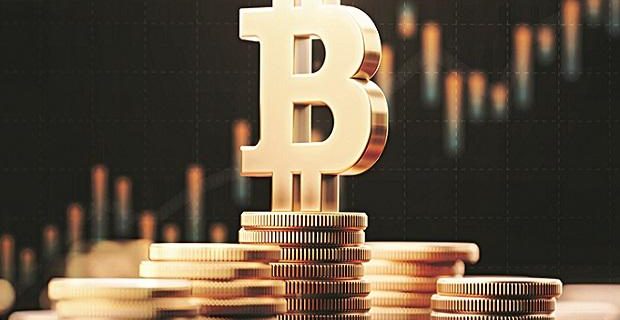Bitcoin's wild gyrations in 2021 have made sure of one thing: The future of money will be electronic, but it won't remotely resemble a cyberpunk utopia. People's power will bow to sovereigns' might.
The mania and panic that have gripped decentralized cryptocurrencies are heightening the attraction of their coming rivals: digital cash, issued by central banks. These tokens will be staid, centralized and state-controlled. That's exactly what users will want in an Internet of Things world where machines need to settle claims with one another all the time, instantaneously, but without contributing to global warming.
Official electronic coins will be a new type of central bank liability alongside physical cash, though for investors betting on the future value of the dollar, yen or the euro, they won't be a novel asset class.
That has clear advantages. To avoid becoming a lightning rod for fresh speculation means that a global economy powered by FedCoin, digital euro and China's e-CNY will make far less onerous demands on energy resources than cryptocurrencies. In the absence of a trusted intermediary, the “mining,” or proof-of-work protocol that keeps the blockchain secure from double-spending attacks, requires power-guzzling hardware. Between Bitcoin and Ethereum, the electricity consumed can light up 16 million American households.
Not so for the distributed ledgers that will verify transfers of official coins. These ledgers will only be held by a select group of intermediaries with the central bank's permission. Instead of being in a race to solve puzzles faster than malicious actors, as we see with decentralized cryptocurrencies, the nodes in the network can lock their own funds to back legitimate transactions.
This approach, known as proof-of-stake, will require a fraction of the energy proof-of-work needs. Ethereum intends to switch. The cryptocurrency Ether will replace hardware and electricity as the investment needed to secure the network. Validators will earn fees by locking up at least 32 Ether. (That's a $72,000 commitment as I write.) If they misbehave, go offline or fail to do their job, the processors can lose their collateral.
A central authority can perhaps run such a network better. After all, those who are vouchsafing transactions must have skin in the game, as they claim — and somebody trustworthy must ensure that they do. As Chi Lo, an economist at BNP Paribas Asset Management Asia, says: “A holder's identity is inevitably required for verification” of balances on a digital ledger.
“Who has the legal identity of coin holders? The government!”
Central banks that aren't constrained by how much fiat money they can create out of thin air use that flexibility to avoid catastrophe, as they did recently during the Covid-19 pandemic. By contrast, a “bitcoin-ized” economy can be dangerous because of finite money supply. As Lo says, if you fix nominal variables, real output has to adjust violently to absorb any economic shocks.
Besides, perfect anonymity of cryptocurrencies is impractical. It comes with unacceptably high risks of money laundering and terror financing. Governments do not want to pry into all — or even most — online transactions. But they won't give up their right to lift the veil of pseudonyms when they want. Hence, the interest worldwide in digital cash. China's plans are most advanced, but other central banks are also in the fray.
If cryptocurrency adoption is a headache for governments, an overwhelming popularity of digital cash could also be an issue. Banks could lose deposits should customers prefer having a direct claim on their monetary authorities. Lenders financing long-term loans with short-term market liquidity might get into trouble later. These risks aren't new. But by ignoring them to a point where subprime mortgage-linked banking losses had to be socialized, authorities created a trust gap with the public: Techno-anarchists burst through it with the template for an electronic payment system based on cryptographic proof instead of trust.
More than a decade later, the cyberpunk movement's success is to be measured not by the highly volatile, speculative asset class it has helped spawn and popularize, but by the rising influence of blockchain technology within the traditional financial system. Digital cash with in-built, self-executing software code will alter the future of money in a way that cryptocurrencies never could. Tokens will win. But trust won't lose.






